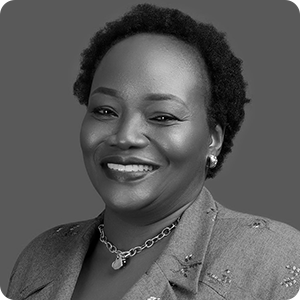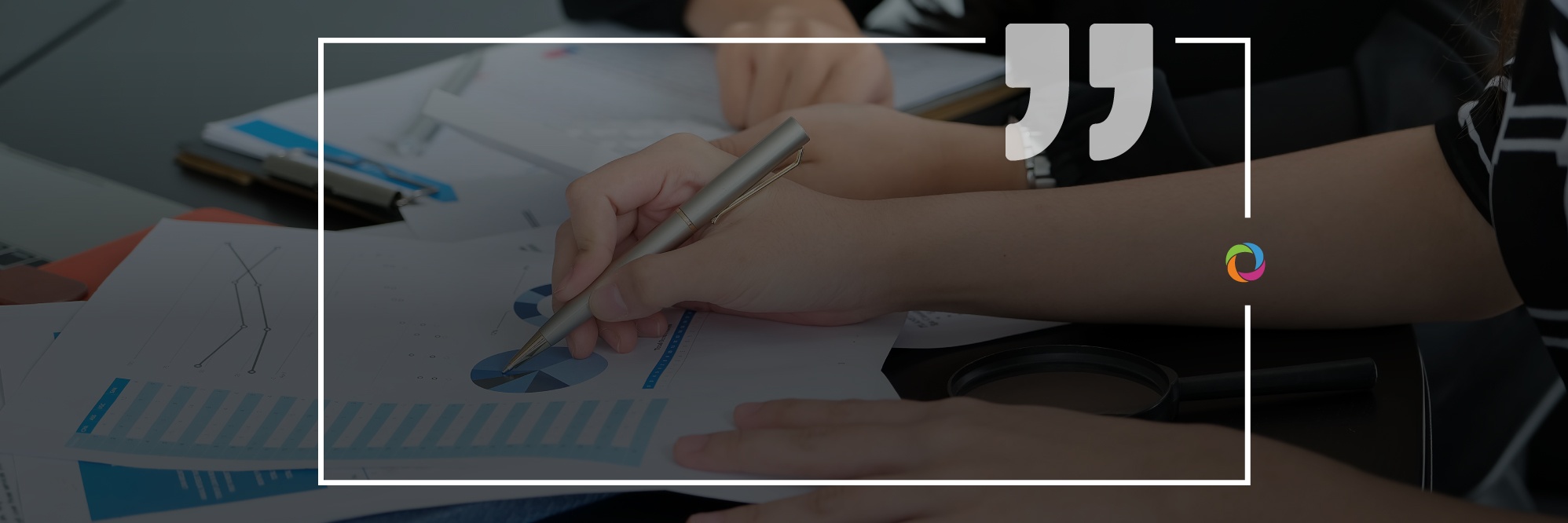For over a decade, DevelopmentAid has helped thousands of experts worldwide to find their vocation and inspire generations. Using our platform, professionals have been able to land a job more easily and bring about a change in the world. We discovered that many of them decided to quit their permanent jobs and explore consultant opportunities.

Today, we invite you to get to know Dr. Lucy Surhyel Newman, DBA, CPT., a professional consultant with over 30 years of experience in Performance Improvement, Corporate Governance, and Institutional Capacity Enhancement
Dr. Newman, what was your previous permanent job?
“My previous permanent position was Managing Director/Chief Executive Officer of the FITC [Financial Institutions Training Center] in Nigeria, a special purpose, not-for-profit professional services organization established in 1981. I was in that role for two five-year terms, back-to-back, from May 2009 to September 2019. That was the first time that I had taken up a role that was purely on contract. As such, you could say that my previous permanent role was as a Principal Consultant for the Business Advisory Performance Improvement Practice at PricewaterhouseCoopers Nigeria. Overall, between my roles at PwC Nigeria and FITC, I was able to lock in over 13 years of incremental external consulting based on which I started transitioning almost two years ago. So with my now overall 32 years of work experience, I am transitioning into independent consulting with over two decades of incremental internal and external consulting. I have so far had the opportunity of leading major projects internally as a counterpart project champion with some of my former employers, working with consulting firms as well as serving as a Subject Matter Expert [SME] on major projects for sub-regional professional networks and operators and regulators within the financial services sector especially the banking, insurance, mortgage and pension industry in Nigeria, Togo, Ghana, Liberia, Sierra Leone, Uganda, Tanzania, Côte D’ Ivoire, Mozambique, Zambia and Ethiopia over the past 15 years. So, I decided to transition into independent consulting and take on the roles of policy advisor and independent director to increase the scope of my capacity to do good, make impact, and have the freedom to undertake creative intellectual work across organizations, teams, and jurisdictions. The opportunity to publish, work from home, learn, unlearn and relearn while making a realistic impact is a major incentive for me.”
Could you mention some pros and cons related to transitioning to independent consulting?
“The pros related to this move are profoundly liberating and fulfilling. They include the ability to choose what projects one would like to undertake in one’s area of interest, the control of one’s time, and, as such, the possibility of also publishing and operating within a broad spectrum in the advisory space including serving on think tanks. It is a path that can be personally fulfilling, free from bureaucracies, and offering possibilities for impact and giving back to humanity while earning an income and meeting new people on projects across jurisdiction clusters of one’s choice. The cons are mainly the risk factors that whoever wants to make such a move must identify, mitigate and contain. These have to do with the need to [a] properly scope the professional areas of interest, jurisdictions, and applicable funding organizations that are open to one’s location or remote work and ensure that one is relatively experienced in the focus areas, [b] make sure one is skilled in the use of modern equipment for word processing, making presentations and other forms of engagements because most of the contracts restrict sub-contracting, [c] the person should also have the discipline of being able to work unsupervised and be open to working across borders and with diverse counterpart teams of collaborating partners, and [d] the independent consultant should be careful not to take on too many projects at a time thus triggering the dual risks of delivery failures and personal burnout.”
Why did you decide to switch to become an independent consultant?
“It is a path that I had planned before taking my last permanent role at PricewaterhouseCoopers then I progressed into my immediate past role as MD/CEO at FITC, a five-year contract role, renewable subject to a retirement age of 60. It was all about incremental opportunities for contribution, systemic impact, and making a difference in a creative manner. Taking the contract role enabled me to mentally transition from full-time employment to a contract role, from which I have now transitioned into independent consultancy, directorship, and policy advisory. I used to wish for a job that could allow me to work from a beach or anywhere. Now that has become real. I made this decision to transition into an independent consultant career well ahead of the pandemic. Now I observe that the pandemic is making people rethink their careers. I am so glad that I had planned well ahead.”
Was it easy or difficult to do so?
“It was easy for me because I had been open to building up to this transition for several years, so I ensured that [1] I continued to make personal investments in the credentials for my intended area of professional impact as an individual while impacting the systems in which I found myself, [2] I was exposed to the required networks for the intended area and kept on developing other leads along the way, [3] I progressively published in the intended area, [4] I planned my finances so that my fixed running costs during the transition were manageable so that I wouldn’t be under financial pressure because it was important to focus on establishing myself in the intended space and continue to invest in the area while growing. For instance, I ensured that my mortgage was fully paid up and my children’s university education well underway – my first son was already an entrepreneur with over six years of post-graduation experience running his business, the second was in his final year at university and the youngest was just starting university. So, my living expenses and other costs were relatively under control at the time of transition except for factors I cannot control like inflation, foreign exchange rate, etc.”
What are some of the advantages and disadvantages of choosing a career as an independent consultant?
“Some of the advantages of choosing an independent consultant career include [a] the opportunity to choose work in an area of passion and where I want to make a contribution, [b] an immense learning opportunity and expansion of professional networks, and [c] one’s ability to manage time and work at one’s own pace or even remote working. It is good for meaningful work. Because I have prepared for this for a while, most areas that would have constituted ‘disadvantages’ have been appreciably addressed. The disadvantages may apply to those who suddenly find themselves in this space without preparation. They will have some time to settle in and in that time they will need to be prepared not to start earning right away. My pension and having some savings without the pressures of financing housing and multiple tertiary education of my children helped me in this regard.”
How did the DevelopmentAid platform help you in this transition?
“The DevelopmentAid website has helped me to build a profile and be visible as an expert, access the tools that help in designing a CV and guides to preparing a proposal and access to a career advisor. There is also the opportunity to set up customized job and funding alerts that suit my preferences as an individual consultant in terms of jurisdiction, areas of specialization, the type of projects, and project budgets. Going through the DevelopmentAid website feels like going through a shopping mall of projects and placing an order. I like the transparency in terms of the status of the projects and the indicative budgets. One can actually track the progress of indicated projects by project phase. Therefore, my advice for optimizing the benefits of the DevelopmentAid website would be to get familiar with the Development Aid tools and if you need help, ask your career advisor to conduct a presentation for you and customize your alerts to keep track of upcoming and in-process opportunities as soon as they become available.”
What advice can you give to those who want to follow your career path?
“My advice for those who want to follow this path would be [a] develop the applicable skills in your intended area of interest, [b] actively seek opportunities to develop the maturity levels required for working independently and collaboratively with others across functional areas, cultures and jurisdictions, [c] keep your credentials fresh and progressive, [d] invest in applicable professional networks and be active in those networks via your contributions, [e] get a firm grip on your finances, [f] ensure your research, writing and communication skills for virtual and face to face engagements are very good, [g] don’t be too rigid – be open to learning on the go.”
On the DevelopmentAid job board and funding menus you can choose from over 8000 jobs, direct consultancies with donors and companies on donor-funded projects daily, worldwide. Get engaged on new contracts more quickly with DevelopmentAid and benefit from our professional career advisory service!

